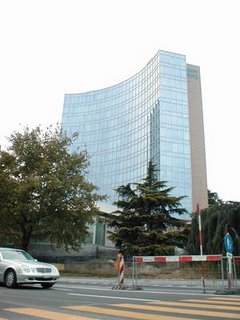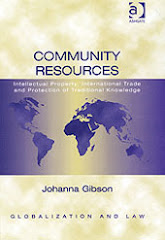
Yesterday, the European Commission published a survey of EU businesses and intellectual property enforcement. The results identify several countries "in the fight against counterfeiting," including China as a main priority, and Russia, the Ukraine, Chile and Turkey as secondary priorities.
Intellectual property enforcement is central to EU policy, and "goes to the heart of the EU's ability to compete in the global economy" with Europe's key competitive advantage coming from the so-called creative economy.
This week, the Commissioner for External Trade, Peter Mandelson, launched the Global Europe external competitiveness strategy, which identified the fight against counterfeiting as critical. In the Commission Staff Working Document, produced by the Directorate-General for Trade (DG Trade), trade policy was tied to better recognition and enforcement of intellectual property rights. In particular, international patent harmonisation is identified in the document as a possible mechanism by which to minimise redundancies and delays in the grant of patents.

International patent harmonisation is part of ongoing discussions in WIPO, considered in particular earlier this week at the 33rd General Assembly. At the General Assembly, Members agreed to submit proposals on the work programme of the Standing Committee on the Law of Patents (SCP) by December, with informal consultations towards a work plan to be held next year. The results of the consultations are to be considered in the 2007 General Assembly at which time a work plan for 2008 and 2009 will be established. WIPO will also be staging a number of informal colloquia on patent issues, including two planned for 11 October (Research Exemption) and 29 November (Standards and Patents) this year.
Importantly, the Commission working document states that work towards international patent harmonisation should keep in mind the potential relationship between intellectual pr
 operty rights, public health, and sustainable development. Indeed, openness and market access are not necessarily the key to economic development according to the Secretary-General of the UN Conference on Trade and Development (UNCTAD), Supachai Panitchpakdi. The Secretary-General explained at a recent Geneva meeting, "UNCTAD, development, and the way forward," that without technical assistance and the development of regional capacity, least developed and developing countries will not benefit from globalization. In an UNCTAD press release, he states, "In fact, some have argued that trade liberalization has in some cases resulted in de-industrialization and even greater poverty."
operty rights, public health, and sustainable development. Indeed, openness and market access are not necessarily the key to economic development according to the Secretary-General of the UN Conference on Trade and Development (UNCTAD), Supachai Panitchpakdi. The Secretary-General explained at a recent Geneva meeting, "UNCTAD, development, and the way forward," that without technical assistance and the development of regional capacity, least developed and developing countries will not benefit from globalization. In an UNCTAD press release, he states, "In fact, some have argued that trade liberalization has in some cases resulted in de-industrialization and even greater poverty."The EU announcement of its recent survey maintains that although the EU does not exclude the possibility of WTO action against intellectual property infringement, it is also "looking to focus technical assistance and cooperation in the joint fight against piracy."



No comments:
Post a Comment